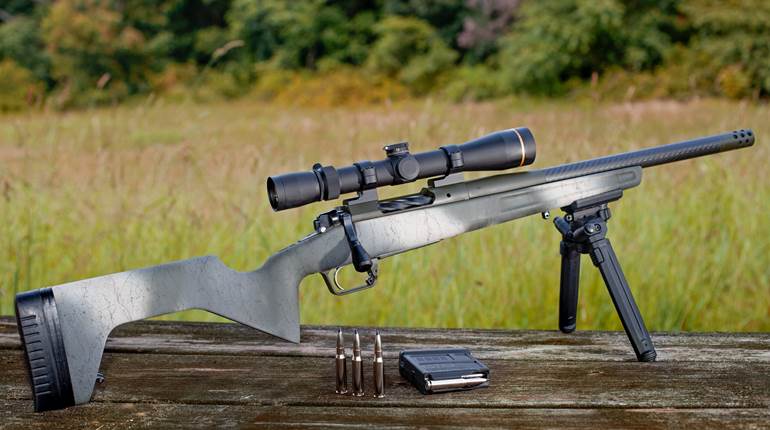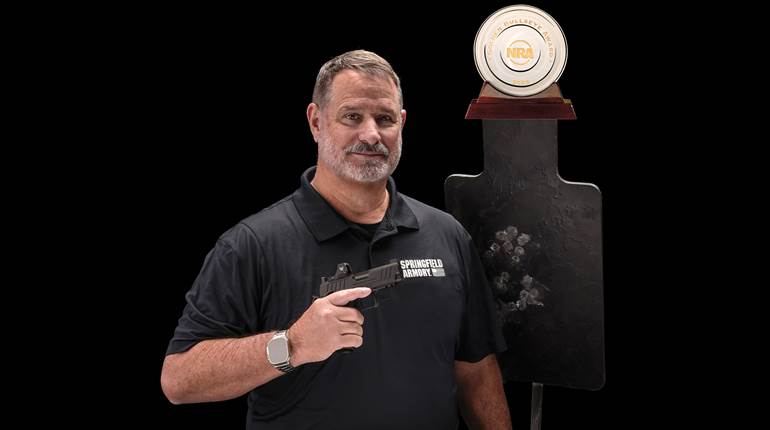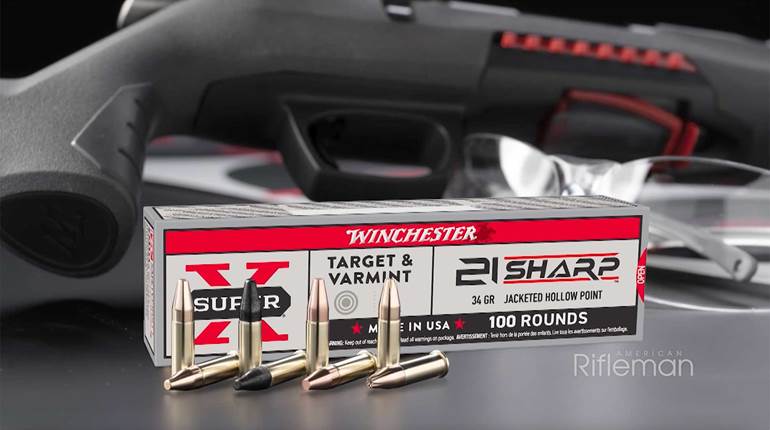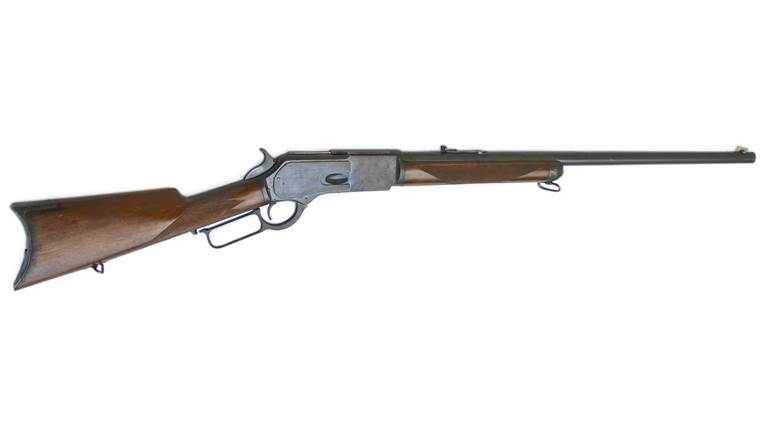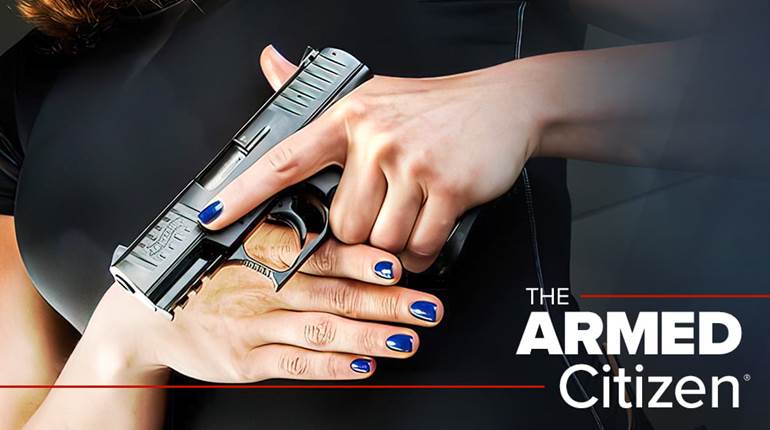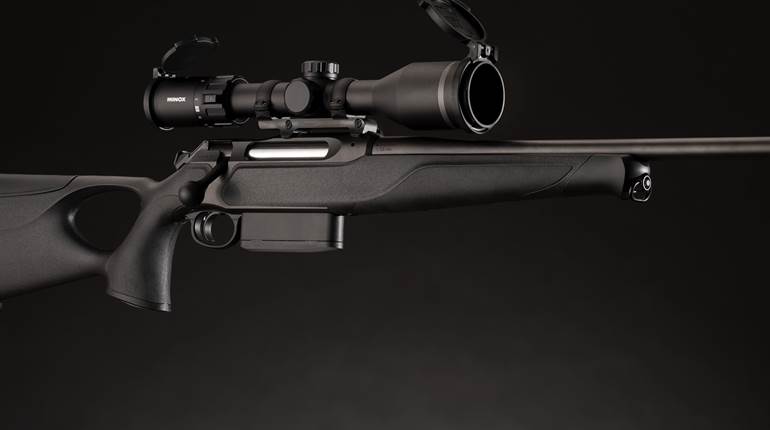
When the gun guys at Springfield Armory first noticed the HS2000, they were interested. It was a unique semi-automatic pistol and a product that might find a home in America. It was a single 9 mm Luger pistol imported from Croatia where it was made in a modernized plant. Originally known as the HS2000, the gun received a couple of changes and Springfield’s well-known logos. The XD is no longer an individual—it has multiplied into a family of pistols in a number of sizes, shapes and calibers. In a little more than a decade, the family became an extended one. In writing this story, I counted 62 individual members. Moreover, the great variety of XDs now available represents many updates in the mechanics, ergonomics and economics of a pistol line that was pretty decent from the start.
 Springfield still offers a number of models of that basic XD in order to provide quality pistols at attractive price points. But when the XD line began to take off, its many fans began to clamor for upgrades and options. Springfield’s response was a redesigned pistol called the XD(M). This one has been covered in these pages on several occasions. XD(M)s are big, strong pistols with double-stack magazines that come in several sizes and four different calibers. Some are even abbreviated at both butt and muzzle for easier concealment. However, the reality of gun designs in the second decade of the 21st Century is that not all shooters need or want the double-stack magazine—and the bulk that comes with it.
Springfield still offers a number of models of that basic XD in order to provide quality pistols at attractive price points. But when the XD line began to take off, its many fans began to clamor for upgrades and options. Springfield’s response was a redesigned pistol called the XD(M). This one has been covered in these pages on several occasions. XD(M)s are big, strong pistols with double-stack magazines that come in several sizes and four different calibers. Some are even abbreviated at both butt and muzzle for easier concealment. However, the reality of gun designs in the second decade of the 21st Century is that not all shooters need or want the double-stack magazine—and the bulk that comes with it.
Enter the XD(S), which has a slim receiver for a single-column magazine. The gun at hand is the latest variant of the XD(S) genre and is called the XD(S) 4.0. For this review, Springfield sent along two of the guns, a .45 ACP and a 9 mm Luger.
Before we get into the ounces and inches of the 4.0s, let’s look briefly at why Springfield is making what would seem to be a giant step backward. Since the 1970s, we have seen dozens of new semi-automatic pistols from around the world. Almost all were fitted with double-column magazines holding from 14 to 19 rounds (in 9 mm Luger). This was and is the standard. Indeed, this is the basic reason for the latter day popularity of the 9 mm cartridge—you can get a bunch of them in a double-column magazine. The resulting pistol is undeniably effective, since it literally has the reload in the gun. But these guns are often bulky and typically heavy. They are also sufficiently thick as to be awkward in the short-fingered hands of more shooters than anyone is willing to admit. Those who regularly shoot the full-capacity models can handle a slimmer gun very well. There is something to be said for a gun that handles well for everyone and better for a small-handed minority.
The XD(S) 4.0 is just such a gun, a remarkable compromise in physical characteristics to please a diverse array of shooters. It is a recoil-operated semi-automatic with 4" barrel. The polymer receiver houses a locking block that also supports the trigger, magazine catch and related parts. The breech locking system is tilting barrel, controlled by cams on the locking block working against matching surfaces on the barrel. While the upper (slide, barrel and recoil spring) of this pistol is machined bar stock, the lower is precision-molded polymer. This has become the universal standard for 21st century pistols, and for good reason because there are economies involved, and the system is very reliable. 
While the same model of gun chambered in 9 mm or .45 ACP would normally entail two different frame sizes to manage the different cartridges, the designers of the XD(S) worked out an interesting way to use a single frame and slide. Essentially, it is a .45-sized receiver that may be used for 9 mm cartridges with some slight changes. The magazines are different in their fore-and-aft measurement, but internal differences in the magazine wells make them work properly. The slides are remarkably alike, differing mainly in the amount of steel machined away in the extractor area. The outside diameter of the barrels is exactly the same, as is the hole in the front of the slide. Inside the gun, the .45 extractor is visibly different than the one in the 9 mm versions. Lest there be some confusion, please understand there is no interchangeable nature to these pistols. You can’t swap barrels and magazines around. The .45 is a .45; the 9 mm is a9 mm. It is just a favorable commentary on the ingenuity that went into simplifying the manufacturing process.
Each pistol comes with two magazines, one long and one short. For the .45, it’s seven rounds for the long and five rounds for the short. The 9 mm is nine and seven rounds, respectively. The short ones flush up on the base of the grip, but the longer magazines have collars around their bottom ends, giving the relatively short grip frame a more shootable length. But the shorter, flush-fitting magazine has a very definite place in the scheme of things. It is well-known that the hardest part of a handgun to conceal is the butt. It’s also true that a greater percentage of guns are now purchased with concealed carry in mind. With the short magazine in place in his XD(S) pistol, the concealed carry handgunner will be able to hide the gun more effectively. Changing to the longer one is easy and affords a slight increase in firepower and a big increase in shootability.
With or without the long magazine in place, the XD(S) 4.0 is an ergonomically sound pistol. I well remember handling the first of the XD breed years ago and how I was impressed when I got one to shoot. There have been nothing but improvements as the gun went through a series of upgrades. The designers were clearly shooters, because there are features on this variation that you usually see only on classic models. For example, there is a deep pocket for the web of the shooting hand. The pocket is positioned well above a line drawn through the center of the trigger arc and very close to the bore axis. As the gun recoils, the shooter’s hand is in a good position to manage the recoil. Further, the trigger guard has a pronounced undercut at the rear, adjacent to the magazine catch. This combination forms a shooter-gun interface that not only aids recoil management, but also allows proper trigger control. 
XD triggers have improved steadily as the upgrades have materialized, but remain unique in the semi-automatic pistol world. Springfield refers to its XD trigger system as the USA (for Ultra Safety Assurance). As is so common these days, the XD(S) pistols all have a striker-fired system. As the slide cycles in firing or manually, the striker is cocked and the trigger sets. To fire, the shooter has only a short trigger pull. Shooting requires a firm grasp in order to fire, since the web of the shooter’s hand depresses a lever in the backstrap—a grip safety. There’s also an articulated lever on the face of the trigger which prevents the trigger from completing its arc unless it is firmly pressed. In addition, there is a spring-loaded plunger in the slide that blocks the striker until the trigger is pressed. The gun is carefully designed to fire only when firmly grasped in a human hand and the trigger deliberately pressed. It works well, with twin advantages. First, in an emergency, the XD(S) requires no action other than pulling the trigger to fire. Second, the trigger pull reset is very short, which means that a shooter can, with dedicated practice, develop great speed in repeat shots.
At the range, when fired from benched sandbags, the two Springfield pistols produced accuracy results consistent with other pistols in this class. Those results are tabulated nearby. Since this gun is primarily intended to be used as a defensive tool, I also did a good deal of fast shooting at close targets. Recoil was manageable, particularly with the long magazines in place. The short magazine was a bit of a problem in the harder-kicking.45 ACP. The more noticeable virtue of the latest XDs was the trigger reset situation. It makes for a remarkably efficient system. It takes some practice, but you can really shoot fast with this pistol.
It would appear that the engineers at Springfield have produced a very nice variant of the basic XD pistol, one that will appear in a lot of holsters in the months—and years— to come.
Technical Specifications
Manufacturer: HS Produkt, Mirka Bogovica 7, 47000 Karlovac, Croatia
Importer: Springfield, Inc., 420 W. Main St., Geneseo, IL 61254; (800) 680-6866; SpringfieldArmory.com
Caliber: .45 ACP, 9 mm Luger
Action Type: recoil-operated semi-automatic, center-fire pistol
Frame: molded polymer
Barrel: 4"
Rifling: 1:16" RH twist (.45 ACP); 1:10" RH twist (9 mm)
Magazine: detachable box: five- or seven-round capacity (.45 ACP); seven- or nine-round capacity (9 mm)
Sights: dovetail rear, fiber-optic front
Trigger Pull: 5.5 to 7.7 lbs.
Overall Length: 7"
Width: 1.25"
Height: 4.4" with short magazine
Weight: 25 ozs.
Accessories: lockable hard case, cable lock, manual, holster, magazine pouch, extended magazine
Suggested Retail: $600 (black), $669 (bi-tone)













